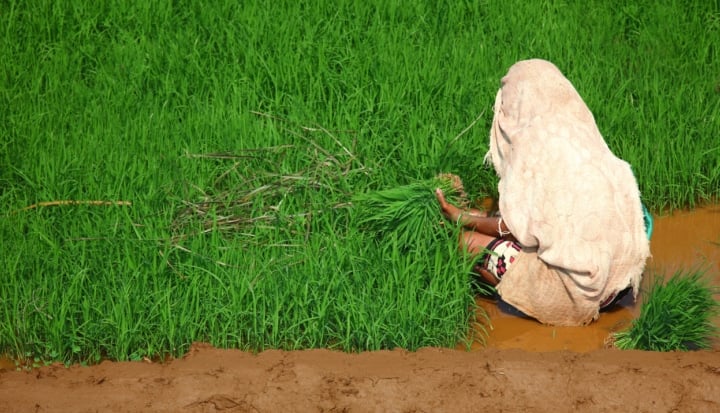A farmer tells his child, “study well and get a job or you will suffer like me.” This is not an isolated caution from a hapless father, but a reality that plays out time and again across villages in the emerging world. Parents don’t want their children to farm. As governments across the world clamour to avoid urban unrest triggered by food prices which have been rising since 2008, farmers are increasingly being considered as mere suppliers of cheap food. Every government wants to increase food productivity, but for a successful transformation, policy-makers have to make farming a profitable profession.
Ironically, food producers are themselves suffering from hunger, poverty and malnutrition. Transforming the system is never easy. The focus should not just be on solving these problems, as they are actually consequences of a bigger issue that needs to be resolved: the fact that the majority of the world practices an unprofitable profession. This issue reminds me of the words of Albert Einstein, “A perfection of means, and confusion of aims, seems to be our main problem.” This is a jigsaw puzzle where all the pieces need to fit together. A lot of those pieces are not on the farm.
So where do we begin? We begin by involving farmers in the decision-making process. Animal husbandry, fisheries and poultry are a means of quickly supplementing small farm family income. Risk mitigation, weather forecasting, access to transparent markets, effective regulatory mechanism, road connectivity and bridging the yield gaps are all some of the required steps.
Global prices of major commodities are dependent on subsidies given to farmers in rich countries; this distorts prices to the point that farmers in poorer countries suffer as their produce becomes less competitive. It even disincentivizes local investment in agricultural research and development, which is key to any successful transformation. Communities can become less vulnerable by adopting new technologies and practices as a resource-liberating mechanism.
Partnerships with the private sector need to be forged and trade across boundaries must be encouraged. These are very important steps to take, but historic experience also warns us of the pitfalls of unequal agreements.
Those who are better off must appreciate that the dissatisfaction of farmers in other parts of the world will inevitably reach their doorstep in forms such as migration and terrorism. At a recent World Economic Forum workshop, all participants agreed that farmers are in a deep well. Only if those with more resources and opportunities throw down a rope will these farmers be able to climb out and become self-sufficient.
This blog was first published on the World Economic Forum Blog, and is reproduced with permission.
Read more about World Food Day and the New Vision for Agriculture










